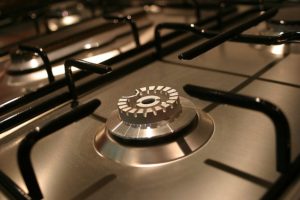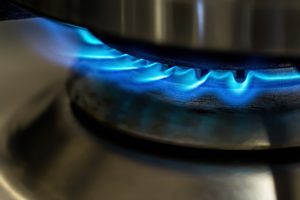What to Know Before Purchasing a New Boiler
The truth is that purchasing a new boiler is a challenging and expensive process. Remember that you need your boiler to perform at an optimal level, especially during winter. You should consider reading reviews to help you find the right one.
Get a Reliable Boiler
When you have a reliable boiler, you are likely to spend less money. That is because you can avoid expensive repairs. Recent studies have shown that average homeowners spend £200 on boiler repairs. That explains why you need a reliable boiler. With a reliable brand, you can save up to 60% on repairs. You do not want to deal with cold showers during winter.
Consult an Engineer
 It is advisable to consult a boiler engineer. This means you will get valuable information that can help you make the right buying decision. In this way, you can get it right when choosing the size and type of boiler you require. However, you should take the opinion and advice of the engineer cautiously. That is because most of them get commissions when they install certain brands of boilers. Thus, the engineer might recommend only a certain brand of boilers.
It is advisable to consult a boiler engineer. This means you will get valuable information that can help you make the right buying decision. In this way, you can get it right when choosing the size and type of boiler you require. However, you should take the opinion and advice of the engineer cautiously. That is because most of them get commissions when they install certain brands of boilers. Thus, the engineer might recommend only a certain brand of boilers.
Types of Boilers
There are different types of boilers available on the market. They are combination boiler, system boiler, and heat-only boiler. The combination boiler heats water on demand. Thus, it does not need a storage tank. The heat-only boiler is also called a conventional boiler. In this case, there is a tank for keeping hot water for later use. On the other hand, the system boiler has different components built-in. The good thing about this is that the boiler is easier to install and takes up minimal space.
For a small home with a single bathroom, you should get a combi boiler. If you have a large home with many people living in it, then you should get a system boiler or heat-only boiler. Your boiler engineer can help you determine the best option.
Boiler Size
 When choosing the right size of the boiler, you should pay attention to the desired water temperature and physical size. The right size is quite unique to you, and this is dependent on the number of people who live in your home. Ensure you get the right boiler that can help you achieve your hot water heating needs.…
When choosing the right size of the boiler, you should pay attention to the desired water temperature and physical size. The right size is quite unique to you, and this is dependent on the number of people who live in your home. Ensure you get the right boiler that can help you achieve your hot water heating needs.…


 The rule of thumb about waterproofing is that you must not do it as a Do-It-Yourself project. Even if you have all the resources and skills, waterproofing the house is going to need you to work with at least three or four workers. It can be expensive if you are trying to employ them without a contractor.
The rule of thumb about waterproofing is that you must not do it as a Do-It-Yourself project. Even if you have all the resources and skills, waterproofing the house is going to need you to work with at least three or four workers. It can be expensive if you are trying to employ them without a contractor. The bathroom is where all the dampness of the house accumulates. There are two things that you can do for your bathroom: installing a vent and advanced drainage system. The vent system will suck the moist air and keep all the surfaces in the bathroom dry. Moss and molds cannot grow in a dry area so the vent will save you from the trouble of cleaning the stubborn bathroom stains. The drainage system prevents the water from seeping into the wall and floor. Seepage can be disastrous because it degrades the concrete’s strength gradually.
The bathroom is where all the dampness of the house accumulates. There are two things that you can do for your bathroom: installing a vent and advanced drainage system. The vent system will suck the moist air and keep all the surfaces in the bathroom dry. Moss and molds cannot grow in a dry area so the vent will save you from the trouble of cleaning the stubborn bathroom stains. The drainage system prevents the water from seeping into the wall and floor. Seepage can be disastrous because it degrades the concrete’s strength gradually. When waterproofing the roof, applying water repellant membrane on the shingles is the most well-known step. But the water also flows through to roof gutter. If the gutter is nor properly installed and allows leakage to accumulate, you need to be ready when you find out that the wall and the ceiling have become moldy and rotten.
When waterproofing the roof, applying water repellant membrane on the shingles is the most well-known step. But the water also flows through to roof gutter. If the gutter is nor properly installed and allows leakage to accumulate, you need to be ready when you find out that the wall and the ceiling have become moldy and rotten. Rusty pipes are the main cause of leakage in the kitchen and the bathroom. It lets the water to ooze out and decomposes the surrounding house parts. Do a regular inspection, like once in every three months. Clean any clogs that you find, and replace the rusty pipes. Old houses might need this treatment more intensely than the newer houses because they use mostly rust-prone metal pipes in the plumbing system.
Rusty pipes are the main cause of leakage in the kitchen and the bathroom. It lets the water to ooze out and decomposes the surrounding house parts. Do a regular inspection, like once in every three months. Clean any clogs that you find, and replace the rusty pipes. Old houses might need this treatment more intensely than the newer houses because they use mostly rust-prone metal pipes in the plumbing system.

